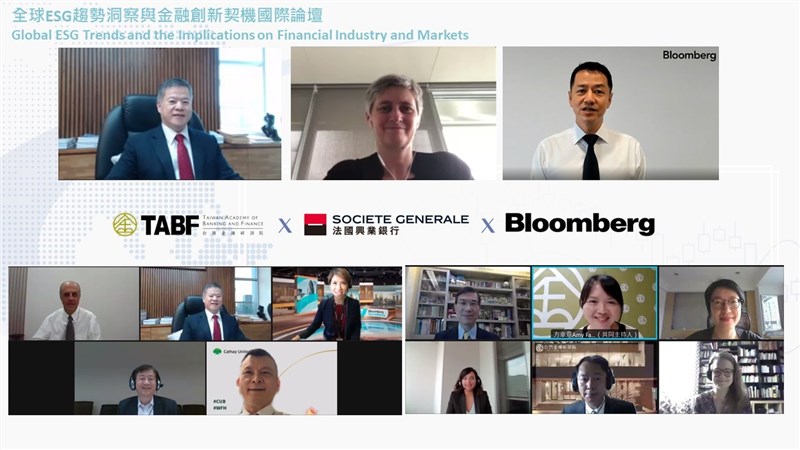Bankers Digest
2021.09
TABF Green Finance Event Analyzes Taxonomies, Project Financing for Taiwanese Bankers

Investors around the world are paying more attention to green indicators, but there are many questions about the meaning of results in corporate disclosures. For instance, is the definition of environmental friendliness in one country or industry comparable to that in others? Such questions have necessitated the creation of “green taxonomies,” unified systems to classify green activities. As with many environmental innovations, Europe is the leader. Taiwan, however, is beginning to focus more on ESG investing and its Green Finance Action Plan 2.0, passed in 2020, called for investigations into the feasibility of a taxonomy for Taiwan. On September 6, in order to better understand these trends and their ramifications for Taiwan, TABF held an event entitled “Global ESG Trends and the Implications on Financial Industry and Markets.” The discussion featured presentations from Societe Generale and Bloomberg, both of which have been active in this space.Societe Generale has played a pivotal role in Taiwan’s energy transition, bridging the gap between project finance expertise of foreign financial institutions and New Taiwan dollar (NTD) liquidity of domestic banks. It was the first foreign bank to issue NTD-denominated green bonds to support offshore wind projects, and has also supported the largest floating solar project. Gaelle Olivier, CEO of Societe Generale, Asia Pacific introduced the work of the and outlook French multinational investment bank, while Hacina Py, Global Head of Sustainable and Positive Impact Finance, explained the practice basics of the new taxonomy, and Daniel Mallo, Head of Natural Resources and Infrastructure Finance, described the future market outlook for green finance.ESG investing and portfolio construction are often data-intensive activities. As a data terminal, Bloomberg provides resources for clients to import third-party or in-house ratings, or create their own. Michael Soviner, Bloomberg Data Specialist, and Shelly Wu, Bloomberg Index Specialist, demonstrated the systems available to show the diversity of possible approaches.The presentations were interspersed with panel discussions featuring insights from a variety of industry professionals, helping put the work of these companies into context. Honda Chen, Head of the Sustainable Finance Office of TABF, pointed out the current difficulties in divergent ratings of companies between different ESG providers, noting Tesla as a prominent example. Michael Wen of Cathay United Bank emphasized the need for entire ecosystems, mentioning requests by customers for ESG waivers in certain cases.Karen Ho, from Bloomberg, pointed out that a fully-developed green financing market would have no need for green bonds; instead, buy-side institutions like mutual funds would engage directly with management based on data from disclosures. Christine Chang of PwC Taiwan also anticipated a transformation from disclosure-based practices into ESG strategies and roadmaps. Taiwan has great potential for integration into global green finance markets. Its offshore wind projects are a new investment class, and most projects are still under construction, without an established track record. This means international capital will be essential, and with it regulatory harmonization. Global warming has already affected Taiwan’s climate, as with most other countries. Thus, this seminar addressed a timely need.



